2024 Perelman School of Medicine Faculty Awards
The Leonard Berwick Memorial Teaching Award
This award was established in 1981 as a memorial to Leonard Berwick by his family and the department of pathology. It recognizes “a member of the medical faculty who in his or her teaching effectively fuses basic science and clinical medicine.” It is intended that this award recognize outstanding teachers, particularly among younger faculty.
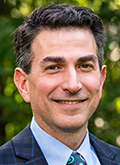 Daniel Wolf grew up in Los Angeles, completed undergraduate work at Harvard College, then did his MD and PhD training at Yale University, a psychiatry residency at MGH-McLean, and a neuropsychiatry fellowship at Penn. He is an associate professor in the neurodevelopment and psychosis section of the PSOM psychiatry department, where he is devoted to a wide range of teaching and mentoring roles. As an outpatient attending psychiatrist, he teaches residents and medical students how to provide longitudinal care to individuals with psychotic disorders. As head of the Laboratory for Motivation in Psychiatry and associate director of the psychosis T32 training program, he provides research supervision and career development mentorship to trainees studying the pathophysiology of psychosis and motivation impairment. He lectures on the neurobiology of psychosis for medical students, psychiatry residents, and psychology graduate students. As director of the clinical neurosciences training (CNST) program, he organizes seminars and mentoring programs for medical and graduate students who are interested in translating between basic neuroscience research and clinical care.
Daniel Wolf grew up in Los Angeles, completed undergraduate work at Harvard College, then did his MD and PhD training at Yale University, a psychiatry residency at MGH-McLean, and a neuropsychiatry fellowship at Penn. He is an associate professor in the neurodevelopment and psychosis section of the PSOM psychiatry department, where he is devoted to a wide range of teaching and mentoring roles. As an outpatient attending psychiatrist, he teaches residents and medical students how to provide longitudinal care to individuals with psychotic disorders. As head of the Laboratory for Motivation in Psychiatry and associate director of the psychosis T32 training program, he provides research supervision and career development mentorship to trainees studying the pathophysiology of psychosis and motivation impairment. He lectures on the neurobiology of psychosis for medical students, psychiatry residents, and psychology graduate students. As director of the clinical neurosciences training (CNST) program, he organizes seminars and mentoring programs for medical and graduate students who are interested in translating between basic neuroscience research and clinical care.
A trainee described his contributions: “Dr. Wolf’s psychosis clinic has been one of the most valuable experiences of my residency. Dr. Wolf’s intellectual curiosity is unparalleled. He possesses an incredible breadth and depth of knowledge and wisdom, and he shares it so generously with his learners. In his didactic teaching before clinic each week, he explains basic science concepts clearly and describes their clinical significance (for example, why a particular pattern of receptor activation makes a medication promising for a patient with a specific constellation of symptoms). At the same time, while he provides a wealth of information, he entrusts learners with the autonomy to make clinical decisions, which is incredibly empowering.”
Robert Dunning Dripps Memorial Award for Excellence in Graduate Medical Education
This award was established by the department of anesthesia in 1984. As a pioneer in the specialty of anesthesia and chair of the department from 1943 to 1972, Dr. Dripps was instrumental in the training of more than 300 residents and fellows, many of whom went on to chair other departments. This award recognizes excellence as an educator of residents and fellows in clinical care, research, teaching, or administration.
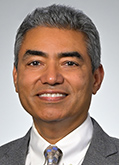 Zubair Baloch received his medical degree from Liaquat Medical University in Hyderabad, Sindh, Pakistan. After receiving his PhD in 1991, he joined the pathology residency at Hahnemann University Hospital. This was followed by fellowships in surgical pathology at Memorial Sloan Kettering Cancer Center in New York and in cytopathology at the University of Pennsylvania Medical Center in Philadelphia. Dr. Baloch began his career as an assistant professor in the department of pathology & laboratory medicine at Penn in 1997 and later advanced to a full professor of pathology and laboratory medicine there. He has authored more than 300 peer reviewed publications in leading pathology and endocrine journals about endocrine and head and neck pathology; and book chapters and monographs. Dr. Baloch has coauthored 3 books and most recently co-edited Milan System for Reporting Salivary Gland Cytopathology. Dr. Baloch is chief editor of Diagnostic Cytopathology and a member of the editorial boards of Cancer Cytopathology, Cytojournal, Endocrine Pathology, and the Journal of American Society of Cytopathology.
Zubair Baloch received his medical degree from Liaquat Medical University in Hyderabad, Sindh, Pakistan. After receiving his PhD in 1991, he joined the pathology residency at Hahnemann University Hospital. This was followed by fellowships in surgical pathology at Memorial Sloan Kettering Cancer Center in New York and in cytopathology at the University of Pennsylvania Medical Center in Philadelphia. Dr. Baloch began his career as an assistant professor in the department of pathology & laboratory medicine at Penn in 1997 and later advanced to a full professor of pathology and laboratory medicine there. He has authored more than 300 peer reviewed publications in leading pathology and endocrine journals about endocrine and head and neck pathology; and book chapters and monographs. Dr. Baloch has coauthored 3 books and most recently co-edited Milan System for Reporting Salivary Gland Cytopathology. Dr. Baloch is chief editor of Diagnostic Cytopathology and a member of the editorial boards of Cancer Cytopathology, Cytojournal, Endocrine Pathology, and the Journal of American Society of Cytopathology.
Dr. Baloch was recently inaugurated as a member of University of Pennsylvania Academy of Master Clinicians. Dr. Baloch’s awards include the University of Pennsylvania Peter Nowell, Kevin Salhany and Best Graduate Student educator awards and service as president of the American Society for Clinical Pathology, which has awarded him the Best Educator Award, the Arthur Purdy Stout Lectureship Award, and the ASCP President’s Service Award.
Blockley-Osler Award
Created in 1987 by the Blockley Section of the Philadelphia College of Physicians, this award is given annually to a member of the faculty at an affiliated hospital for excellence in teaching modern clinical medicine at the bedside in the tradition of William Osler and others who taught at Philadelphia General Hospital.
 Paula Chatterjee is an assistant professor of medicine at the University of Pennsylvania’s Perelman School of Medicine, director of health equity research at PSOM, and a senior fellow of the Leonard Davis Institute of Health Economics. She is a general internist and health policy researcher whose work focuses on ensuring the viability of the healthcare safety-net for low-income patients. Her work has been nationally recognized for its use of novel descriptive approaches and causal inference methods to reveal mechanisms of structural inequity in healthcare delivery and payment. Dr. Chatterjee’s research has had policy impact at both the state and national levels: She has testified for the Pennsylvania House of Representatives’ Subcommittee on Health on the role of payment policy in ensuring hospital viability, and her work on safety-net hospital financing has influenced discussions held by the Medicare Payment Advisory Commission and the Medicaid and CHIP Payment & Access Commission, both of which advise Congress on national healthcare payment policy. Dr. Chatterjee completed her residency and chief residency in internal medicine at Brigham and Women’s Hospital. She received her MD from Harvard Medical School, and her MPH and undergraduate degrees from Yale University. She practices inpatient medicine on the teaching service at Penn Presbyterian Medical Center.
Paula Chatterjee is an assistant professor of medicine at the University of Pennsylvania’s Perelman School of Medicine, director of health equity research at PSOM, and a senior fellow of the Leonard Davis Institute of Health Economics. She is a general internist and health policy researcher whose work focuses on ensuring the viability of the healthcare safety-net for low-income patients. Her work has been nationally recognized for its use of novel descriptive approaches and causal inference methods to reveal mechanisms of structural inequity in healthcare delivery and payment. Dr. Chatterjee’s research has had policy impact at both the state and national levels: She has testified for the Pennsylvania House of Representatives’ Subcommittee on Health on the role of payment policy in ensuring hospital viability, and her work on safety-net hospital financing has influenced discussions held by the Medicare Payment Advisory Commission and the Medicaid and CHIP Payment & Access Commission, both of which advise Congress on national healthcare payment policy. Dr. Chatterjee completed her residency and chief residency in internal medicine at Brigham and Women’s Hospital. She received her MD from Harvard Medical School, and her MPH and undergraduate degrees from Yale University. She practices inpatient medicine on the teaching service at Penn Presbyterian Medical Center.
Scott Mackler Award for Excellence in Substance Abuse Teaching
This award was established in 2000 by the Penn/VA Center for Studies of Addiction and the department of psychiatry. Scott Mackler is remembered for his excellence in teaching medical students, residents, postdoctoral fellows, nurses, and other Penn faculty in many different departments in the area of substance abuse.
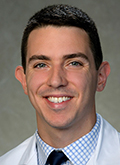 Joshua E. Glick is an attending physician in the department of emergency medicine at the Hospital of the University of Pennsylvania and an assistant professor in the Perelman School of Medicine. Beyond his clinical responsibilities, Dr. Glick is also the associate director of PSOM’s Introduction to Clinical Medicine course and the medical director for the Penn Medical Emergency Response Team (MERT), Penn’s undergraduate student-run EMS agency on campus.
Joshua E. Glick is an attending physician in the department of emergency medicine at the Hospital of the University of Pennsylvania and an assistant professor in the Perelman School of Medicine. Beyond his clinical responsibilities, Dr. Glick is also the associate director of PSOM’s Introduction to Clinical Medicine course and the medical director for the Penn Medical Emergency Response Team (MERT), Penn’s undergraduate student-run EMS agency on campus.
Dr. Glick earned an undergraduate degree from Penn in 2010, and his medical degree from Penn State in 2014. Dr. Glick rejoined the Penn community for his resident training in emergency medicine, ultimately being hired as a faculty member in 2018. Outside of the department, he has volunteered hundreds of hours educating students as a facilitator of many of the first-and second-year courses, including Doctoring, Ultrasound, Microbiology, and Introduction to Clinical Medicine. He also most recently paired with a medical student to help develop a special session addressing how to take a detailed yet patient-centered substance use history. He works frequently with students on his clinical shifts to ensure that they learn how to provide detailed and compassionate care to patients experiencing substance use and the emergent consequences that can result.
As the medical director of MERT, Penn’s student-run EMS agency, Dr. Glick is not only responsible for ensuring that the group provides exceptional care through regular education initiatives, but also works to promote opioid overdose awareness on campus through community training and education programs with MERT. Most recently, he partnered with two recent graduates and awardees of the President’s Engagement Prize at Penn to develop a program that provided free first aid and overdose awareness skills to local middle and high school students in Philadelphia.
Dean’s Award for Excellence in Clinical Teaching (at an Affiliated Hospital)
The Dean’s Award for Excellence in Clinical Teaching was established in 1989 to recognize clinical teaching excellence and commitment to medical education by outstanding faculty members from affiliated hospitals. One or more Dean’s Awards are given annually, the recipients being selected on the advice of a committee of faculty and students.
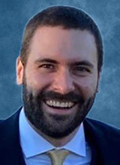 Andres Deik is a graduate of the Universidad del Norte in his native Barranquilla, Colombia. He completed his residency in neurology and his fellowship in movement disorders at Mount Sinai Beth Israel in New York City, then completed a master’s degree in medical education at Penn in 2016. He is currently an associate professor of clinical neurology at the Parkinson’s Disease and Movement Disorders Center (PD&MDC).
Andres Deik is a graduate of the Universidad del Norte in his native Barranquilla, Colombia. He completed his residency in neurology and his fellowship in movement disorders at Mount Sinai Beth Israel in New York City, then completed a master’s degree in medical education at Penn in 2016. He is currently an associate professor of clinical neurology at the Parkinson’s Disease and Movement Disorders Center (PD&MDC).
Dr. Deik devotes his time to clinical care, spearheading the clinical trials enterprise at PD&MDC and directing the center’s Movement Disorders Fellowship. During his tenure at Penn, he has taught medical and genetic counseling students, neurology residents and movement fellows, as well as served as a career mentor for several neurology residents.
 Sarah DeMichele is a clinical assistant professor in the department of psychiatry at the Perelman School of Medicine. She was a resident in the department of psychiatry at Penn, where she served as chief resident, and has been affiliated with Penn since her residency. For years, she has taught in the acute inpatient psychiatry units at the Veteran Affairs Hospital while also educating trainees during their ambulatory rotations, including Resident Assessment Clinic. She recognizes the importance of bedside teaching, the collaboration among disciplines, and the personal well-being of each student, and actively engages with students in all these areas. One student wrote, “[Dr. DeMichele is] one of the best faculty members I’ve worked with this year. She encouraged us to have autonomy in conducting interviews, but was also invested in giving us personalized feedback with many observed interviews. She was clearly invested in ensuring we had a good learning experience and helped us find time for teaching sessions as well as more informal discussion of patients’ diagnoses.”
Sarah DeMichele is a clinical assistant professor in the department of psychiatry at the Perelman School of Medicine. She was a resident in the department of psychiatry at Penn, where she served as chief resident, and has been affiliated with Penn since her residency. For years, she has taught in the acute inpatient psychiatry units at the Veteran Affairs Hospital while also educating trainees during their ambulatory rotations, including Resident Assessment Clinic. She recognizes the importance of bedside teaching, the collaboration among disciplines, and the personal well-being of each student, and actively engages with students in all these areas. One student wrote, “[Dr. DeMichele is] one of the best faculty members I’ve worked with this year. She encouraged us to have autonomy in conducting interviews, but was also invested in giving us personalized feedback with many observed interviews. She was clearly invested in ensuring we had a good learning experience and helped us find time for teaching sessions as well as more informal discussion of patients’ diagnoses.”
Dr. DeMichele is a skilled clinician and devoted educator who is passionate about medical student mentoring and training. She was the inaugural recipient of the Junior Clinical Faculty Teaching Award, and she has been selected four times for the Albert Stunkard Faculty Recognition Award for her dedication, mentorship, and guidance in residency training.
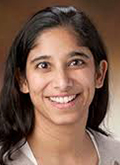 Sudha Kessler is an associate professor of neurology and pediatrics at the Perelman School of Medicine, and an attending physician in the division of neurology at the Children’s Hospital of Philadelphia. Dr. Kessler received her BA in English from Yale University and her MD from Baylor College of Medicine. She completed her pediatrics residency at the Lucile Packard Children’s Hospital at Stanford University, then a child neurology residency at CHOP. She went on to complete an epilepsy fellowship at Columbia Comprehensive Epilepsy Center/New York Presbyterian Hospital and to receive her MSCE degree. Dr. Kessler has served as program director of the CHOP pediatric epilepsy fellowship since 2014 and as program director of the CHOP child neurology residency program since 2017. Since her appointment, she has increased the overall resident complement from 12 to 21 (making it one of the largest programs in the country), created three pre-neurology pediatric resident pathways (depending on board specialization and research interests), and doubled the program’s didactic offerings. On top of her work locally, she has improved neurology education on a national level, serving as the vice chair and question-writer of the Residency In-Service Training Exam (RITE) committee of the American Academy of Neurology. She has also worked with the American Epilepsy Society to create a similar mock board exam for epilepsy fellows called the EPIFITE (established in 2019). Her work has been recognized with several key teaching awards, including the Resident Award for Excellence in Teaching at the University of Pennsylvania and the highly prestigious A.B. Baker Teaching Recognition Award from the American Academy of Neurology (2021).
Sudha Kessler is an associate professor of neurology and pediatrics at the Perelman School of Medicine, and an attending physician in the division of neurology at the Children’s Hospital of Philadelphia. Dr. Kessler received her BA in English from Yale University and her MD from Baylor College of Medicine. She completed her pediatrics residency at the Lucile Packard Children’s Hospital at Stanford University, then a child neurology residency at CHOP. She went on to complete an epilepsy fellowship at Columbia Comprehensive Epilepsy Center/New York Presbyterian Hospital and to receive her MSCE degree. Dr. Kessler has served as program director of the CHOP pediatric epilepsy fellowship since 2014 and as program director of the CHOP child neurology residency program since 2017. Since her appointment, she has increased the overall resident complement from 12 to 21 (making it one of the largest programs in the country), created three pre-neurology pediatric resident pathways (depending on board specialization and research interests), and doubled the program’s didactic offerings. On top of her work locally, she has improved neurology education on a national level, serving as the vice chair and question-writer of the Residency In-Service Training Exam (RITE) committee of the American Academy of Neurology. She has also worked with the American Epilepsy Society to create a similar mock board exam for epilepsy fellows called the EPIFITE (established in 2019). Her work has been recognized with several key teaching awards, including the Resident Award for Excellence in Teaching at the University of Pennsylvania and the highly prestigious A.B. Baker Teaching Recognition Award from the American Academy of Neurology (2021).
As former trainees have commented, “[Dr. Kessler] is exactly the kind of physician, teacher, and mentor that a top-flight institution should celebrate and recognize… [she] shows incredible humanity in her everyday life that makes her teaching and practice all the more impactful. She has an appreciation for the joyous, the tragic, the humorous, and the unknown that is incredibly rare among humans. She can celebrate a good outcome alongside family as readily as she can marinate in a disappointing one. Her humanity gives her teaching vitality.”
 Jay Mehta is an associate professor of clinical pediatrics in the division of rheumatology at Children’s Hospital of Philadelphia. He received his medical degree from the University of Nevada School of Medicine, completed his pediatrics residency at Denver Children’s Hospital, and completed his pediatric rheumatology fellowship at CHOP. He serves as the CHOP pediatric rheumatology fellowship program director and has received the American College of Rheumatology Clinician Scholar Educator Award.
Jay Mehta is an associate professor of clinical pediatrics in the division of rheumatology at Children’s Hospital of Philadelphia. He received his medical degree from the University of Nevada School of Medicine, completed his pediatrics residency at Denver Children’s Hospital, and completed his pediatric rheumatology fellowship at CHOP. He serves as the CHOP pediatric rheumatology fellowship program director and has received the American College of Rheumatology Clinician Scholar Educator Award.
Dr. Metha was one of the founders of the CHOP Center for Leadership and Innovation in Medical Education. He is passionate about mentoring fellows and early career faculty, both at CHOP and nationally, about demystifying rheumatology for trainees at all levels, and about amusing patients of all ages with dad jokes.
 Chidinma Nwakanma is an assistant professor of clinical emergency medicine. She received her medical degree from Northeast Ohio Medical University and completed her emergency medicine residency and fellowship in resuscitation/critical care at Stony Brook University Hospital. Dr. Nwakanma joined the Penn faculty in 2017 and has served as an emergency medicine attending physician at both the Hospital of the University of Pennsylvania and Penn Presbyterian Medical Center. Her professional interests include critical care, women’s health, health media, gun violence prevention, global medicine (particularly in West Africa and the Caribbean), and health equity as it pertains to Black/Brown communities. She is passionate about increasing minority representation in medicine and, for the past 3 years, has served as the director of the underrepresented minorities visiting clerkship in emergency medicine. She was recently appointed as the vice chair of inclusion, diversity, equity and antiracism in the department of emergency medicine.
Chidinma Nwakanma is an assistant professor of clinical emergency medicine. She received her medical degree from Northeast Ohio Medical University and completed her emergency medicine residency and fellowship in resuscitation/critical care at Stony Brook University Hospital. Dr. Nwakanma joined the Penn faculty in 2017 and has served as an emergency medicine attending physician at both the Hospital of the University of Pennsylvania and Penn Presbyterian Medical Center. Her professional interests include critical care, women’s health, health media, gun violence prevention, global medicine (particularly in West Africa and the Caribbean), and health equity as it pertains to Black/Brown communities. She is passionate about increasing minority representation in medicine and, for the past 3 years, has served as the director of the underrepresented minorities visiting clerkship in emergency medicine. She was recently appointed as the vice chair of inclusion, diversity, equity and antiracism in the department of emergency medicine.
Dr. Nwakanma is dedicated to bedside teaching and presents high quality critical care lectures, which both residents and seasoned attendings have said are practical and digestible with pertinent clinical pearls. She strives to highlight social determinants of health and cultural competency in addition to clinical medicine when teaching trainees. She has been featured at numerous local and international conferences, on local radio shows and podcasts, and in several major national newspapers. She has received numerous departmental teaching and clinical awards at SBUH and Penn, and was recently honored nationally for her exceptional bedside teaching by the American College of Emergency Physicians.
 Laura A. Stein is an assistant professor in the department of neurology and the current co-director of the neurology residency program. She graduated from Drexel University College of Medicine, then completed her neurology residency and vascular neurology fellowship at the Hospital of the University of Pennsylvania. Dr. Stein also earned her master’s degree in medical education from Penn’s Graduate School of Education in 2018. She joined Penn’s faculty in 2018 and serves as a vascular neurology and neurohospitalist attending physician at multiple sites across the system, teaching medical students and residents. Dr. Stein’s academic areas of interest include medical education, quality improvement, and health equity. She holds departmental roles in these areas and has mentored multiple residents in their own academic work in these spaces.
Laura A. Stein is an assistant professor in the department of neurology and the current co-director of the neurology residency program. She graduated from Drexel University College of Medicine, then completed her neurology residency and vascular neurology fellowship at the Hospital of the University of Pennsylvania. Dr. Stein also earned her master’s degree in medical education from Penn’s Graduate School of Education in 2018. She joined Penn’s faculty in 2018 and serves as a vascular neurology and neurohospitalist attending physician at multiple sites across the system, teaching medical students and residents. Dr. Stein’s academic areas of interest include medical education, quality improvement, and health equity. She holds departmental roles in these areas and has mentored multiple residents in their own academic work in these spaces.
Dean’s Award for Excellence in Medical Student Teaching by an Allied Health Professional
This award was established in 1997 to recognize outstanding teaching by allied health professionals (e.g. nurses, physician’s assistants, emergency medical technicians). The recipient is selected on the advice of a committee composed of faculty and students.
 Maria T. Castro is the lead certified medical assistant of Children’s Hospital of Philadelphia South Philly Primary Care. With over 30 years of experience in the medical field, the last 17 of which were at CHOP, Ms. Castro has found her home in providing outstanding care for those at her workplace. But her care reaches far beyond checkups, vaccinations, and blood work: Anyone who has had the chance to meet Ms. Castro has experienced her nurturing character. As a leader, mentor, and mother, Ms. Castro constantly strives to enrich the lives of others. She welcomes patients with a smile and constantly goes out of her way to make a difference for them, even if for only a moment. As an immigrant from the Dominican Republic, Ms. Castro knows the hardships that come with being far from home and has made it her life goal to help other immigrants navigate these challenges.
Maria T. Castro is the lead certified medical assistant of Children’s Hospital of Philadelphia South Philly Primary Care. With over 30 years of experience in the medical field, the last 17 of which were at CHOP, Ms. Castro has found her home in providing outstanding care for those at her workplace. But her care reaches far beyond checkups, vaccinations, and blood work: Anyone who has had the chance to meet Ms. Castro has experienced her nurturing character. As a leader, mentor, and mother, Ms. Castro constantly strives to enrich the lives of others. She welcomes patients with a smile and constantly goes out of her way to make a difference for them, even if for only a moment. As an immigrant from the Dominican Republic, Ms. Castro knows the hardships that come with being far from home and has made it her life goal to help other immigrants navigate these challenges.
Ms. Castro’s passion for providing comfort to those around her means that anywhere she goes, others have a home. A medical student wrote, “Dear Maria, Thank you for being a fun person who taught me the joy in pediatrics. Your cheer and knowledge of the community bring a light to the office that is unmatched. I’m so happy to have worked with you and hope to figure a way to come back.”
Dean’s Award for Excellence in Basic Science Teaching
The Dean’s Award for Excellence in Basic Science Teaching was established in 1988 to recognize teaching excellence and commitment to medical student teaching in the basic sciences. One or more Dean’s Awards are given annually, the recipients being selected on the advice of a committee of faculty and students.
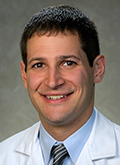 Michael E. Abboud is an assistant professor in the department of emergency medicine (EM). He received his BA and MD at Penn, then completed his training at the Harvard Affiliated Emergency Medicine Residency Program at Massachusetts General Hospital and Brigham and Women’s Hospital. After returning to Penn in 2018, he completed his master’s degree in medical education at Penn’s Graduate School of Education. Dr. Abboud divides his clinical time between HUP and Penn Presbyterian and plays many roles within the emergency medicine (EM) residency program, including as simulation director and assistant residency director. He has spearheaded several major changes within the EM residency curriculum, including designing team leadership curricula, novel simulation training, cadaver labs, beginner and advanced airway courses, and a yearly SonoGames competition. He has been co-director of the Perelman School of Medicine’s Microbiology and Infectious Diseases I course since 2020, helping to transform the course by injecting clinical correlates and highlighting the connections between microbial properties and patient presentation. Dr. Abboud has won numerous awards for his educational and clinical work, including the Hospital of the University of Pennsylvania EM Faculty Teaching Award, HUP’s EM Faculty of the Year, and the department of EM Patient Safety Award.
Michael E. Abboud is an assistant professor in the department of emergency medicine (EM). He received his BA and MD at Penn, then completed his training at the Harvard Affiliated Emergency Medicine Residency Program at Massachusetts General Hospital and Brigham and Women’s Hospital. After returning to Penn in 2018, he completed his master’s degree in medical education at Penn’s Graduate School of Education. Dr. Abboud divides his clinical time between HUP and Penn Presbyterian and plays many roles within the emergency medicine (EM) residency program, including as simulation director and assistant residency director. He has spearheaded several major changes within the EM residency curriculum, including designing team leadership curricula, novel simulation training, cadaver labs, beginner and advanced airway courses, and a yearly SonoGames competition. He has been co-director of the Perelman School of Medicine’s Microbiology and Infectious Diseases I course since 2020, helping to transform the course by injecting clinical correlates and highlighting the connections between microbial properties and patient presentation. Dr. Abboud has won numerous awards for his educational and clinical work, including the Hospital of the University of Pennsylvania EM Faculty Teaching Award, HUP’s EM Faculty of the Year, and the department of EM Patient Safety Award.
Dean’s Award for Excellence in Clinical Teaching by Housestaff
This award was established in 2015 to recognize clinical teaching excellence and commitment to medical education by outstanding housestaff. One award is given annually. The recipient is selected on the advice of a committee of faculty and students.
 Alexandra Miller is a PGY-4 psychiatry resident and served as chief resident for medical education from 2023-2024. Dr. Miller graduated from Harvard College in 2007 with a degree in English. She was a middle school English teacher for six years and completed her master’s degree in education at the University of Pennsylvania, then made the decision to change careers into medicine. She graduated from the Perelman School of Medicine in 2020, where she served as co-president of the Gold Humanism Honor Society and received the Leonard Tow Humanism in Medicine Award and the Physicians for Social Responsibility Soul of Medicine Award. During her psychiatry residency at Penn, she has enjoyed being involved in medical education for medical students and residents, participating in a redesign of the Brain and Behavior course. She was recognized with the psychiatry department’s Medical Student Teaching Award in 2022. Clinically, Dr. Miller is passionate about community psychiatry and early psychosis. When she completes her residency training, she will join the faculty in the psychiatry department at Penn, where she will treat patients in the outpatient setting and continue her work in medical education with medical students and residents.
Alexandra Miller is a PGY-4 psychiatry resident and served as chief resident for medical education from 2023-2024. Dr. Miller graduated from Harvard College in 2007 with a degree in English. She was a middle school English teacher for six years and completed her master’s degree in education at the University of Pennsylvania, then made the decision to change careers into medicine. She graduated from the Perelman School of Medicine in 2020, where she served as co-president of the Gold Humanism Honor Society and received the Leonard Tow Humanism in Medicine Award and the Physicians for Social Responsibility Soul of Medicine Award. During her psychiatry residency at Penn, she has enjoyed being involved in medical education for medical students and residents, participating in a redesign of the Brain and Behavior course. She was recognized with the psychiatry department’s Medical Student Teaching Award in 2022. Clinically, Dr. Miller is passionate about community psychiatry and early psychosis. When she completes her residency training, she will join the faculty in the psychiatry department at Penn, where she will treat patients in the outpatient setting and continue her work in medical education with medical students and residents.
Special Dean’s Award
The Special Dean’s Award was established in 1990 to recognize outstanding achievements in medical education by faculty members, particularly in the development of new, innovative educational programs. The senior vice dean for medical education, in consultation with the Teaching Awards Selection Committee, identifies unique contributions by faculty and recognizes exceptional support and innovative planning for all educational programs during COVID-19, resulting in their receipt of this special honor.
 is an associate professor in cell and developmental biology (CDB). After receiving his BA from Dartmouth, he came to Penn, where he received his MD and his PhD. He became a faculty member in CDB (formerly the anatomy department) in 1977. With his long-time collaborator, the late Alan M. Kelly, dean of Penn’s School of Veterinary Medicine from 1994 to 2005, he focused on the determinants of muscle fiber types and on the neural and hormonal causes of transitions from one myosin isoform to another during development. With his student Hansell Stedman, now in the department of surgery, he isolated the human myosin heavy chain gene locus. In 2002, he became course director of the anatomy course for first year medical students; over the succeeding 20 years, he transformed it into a modern clinical anatomy course that incorporated CT, MRI, and ultrasound while remaining centered on cadaver dissection. He recruited clinical faculty to teach in the course, and the success of this clinical approach led to an increased interest in anatomy among upperclassmen. Each year, as many as 2/3 of the MS4 class volunteered to be teaching assistants in the course. This overwhelming interest in reviewing cadaveric-based anatomy has since led to a renewed interest in surgical residencies.
is an associate professor in cell and developmental biology (CDB). After receiving his BA from Dartmouth, he came to Penn, where he received his MD and his PhD. He became a faculty member in CDB (formerly the anatomy department) in 1977. With his long-time collaborator, the late Alan M. Kelly, dean of Penn’s School of Veterinary Medicine from 1994 to 2005, he focused on the determinants of muscle fiber types and on the neural and hormonal causes of transitions from one myosin isoform to another during development. With his student Hansell Stedman, now in the department of surgery, he isolated the human myosin heavy chain gene locus. In 2002, he became course director of the anatomy course for first year medical students; over the succeeding 20 years, he transformed it into a modern clinical anatomy course that incorporated CT, MRI, and ultrasound while remaining centered on cadaver dissection. He recruited clinical faculty to teach in the course, and the success of this clinical approach led to an increased interest in anatomy among upperclassmen. Each year, as many as 2/3 of the MS4 class volunteered to be teaching assistants in the course. This overwhelming interest in reviewing cadaveric-based anatomy has since led to a renewed interest in surgical residencies.
The Michael P. Nusbaum Graduate Student Mentoring Award
The Michael (Mikey) P. Nusbaum Graduate Student Mentoring Award was established in 2017 to honor Mikey Nusbaum as he stepped down from his role as associate dean for graduate education and director of biomedical graduate studies.
 This year’s recipient of the Michael P. Nusbaum Graduate Student Mentoring Award is Crystal S. Conn, an assistant professor of radiation oncology in the Perelman School of Medicine. Dr. Conn has made substantial contributions to mentoring that have made a great impact on their students since they have been at Penn. Further, Dr. Conn’s dedication to being a role model for training advocacy, inclusivity, and mentoring students to reach their scholarly potential exemplifies the type of scientist and mentor that Mikey Nusbaum represents.
This year’s recipient of the Michael P. Nusbaum Graduate Student Mentoring Award is Crystal S. Conn, an assistant professor of radiation oncology in the Perelman School of Medicine. Dr. Conn has made substantial contributions to mentoring that have made a great impact on their students since they have been at Penn. Further, Dr. Conn’s dedication to being a role model for training advocacy, inclusivity, and mentoring students to reach their scholarly potential exemplifies the type of scientist and mentor that Mikey Nusbaum represents.
The Jane M. Glick Graduate Student Teaching Award
The Jane M. Glick Graduate Student Teaching Award was established in 2009 by the Glick family in remembrance of Jane Glick and her dedication to the biomedical graduate studies (BGS) programs.
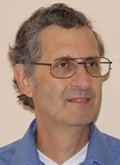 This year’s recipient of the Jane M. Glick Graduate Student Teaching Award is Jeffrey M. Field, a professor of pharmacology in the Perelman School of Medicine. Dr. Field has taken a leadership role in running the Fundamentals of Pharmacology course over many years. His efforts to ensure the course adapts each year by including the most cutting-edge therapeutics is paramount in ensuring the Pharmacology Graduate Group students benefit immensely from this required course. Dr. Field’s teaching style in the course is lauded by his students. His dedication to these efforts exemplifies the type of scientist/educator that Dr. Glick represented.
This year’s recipient of the Jane M. Glick Graduate Student Teaching Award is Jeffrey M. Field, a professor of pharmacology in the Perelman School of Medicine. Dr. Field has taken a leadership role in running the Fundamentals of Pharmacology course over many years. His efforts to ensure the course adapts each year by including the most cutting-edge therapeutics is paramount in ensuring the Pharmacology Graduate Group students benefit immensely from this required course. Dr. Field’s teaching style in the course is lauded by his students. His dedication to these efforts exemplifies the type of scientist/educator that Dr. Glick represented.


 Daniel Wolf grew up in Los Angeles, completed undergraduate work at Harvard College, then did his MD and PhD training at Yale University, a psychiatry residency at MGH-McLean, and a neuropsychiatry fellowship at Penn. He is an associate professor in the neurodevelopment and psychosis section of the PSOM psychiatry department, where he is devoted to a wide range of teaching and mentoring roles. As an outpatient attending psychiatrist, he teaches residents and medical students how to provide longitudinal care to individuals with psychotic disorders. As head of the Laboratory for Motivation in Psychiatry and associate director of the psychosis T32 training program, he provides research supervision and career development mentorship to trainees studying the pathophysiology of psychosis and motivation impairment. He lectures on the neurobiology of psychosis for medical students, psychiatry residents, and psychology graduate students. As director of the clinical neurosciences training (CNST) program, he organizes seminars and mentoring programs for medical and graduate students who are interested in translating between basic neuroscience research and clinical care.
Daniel Wolf grew up in Los Angeles, completed undergraduate work at Harvard College, then did his MD and PhD training at Yale University, a psychiatry residency at MGH-McLean, and a neuropsychiatry fellowship at Penn. He is an associate professor in the neurodevelopment and psychosis section of the PSOM psychiatry department, where he is devoted to a wide range of teaching and mentoring roles. As an outpatient attending psychiatrist, he teaches residents and medical students how to provide longitudinal care to individuals with psychotic disorders. As head of the Laboratory for Motivation in Psychiatry and associate director of the psychosis T32 training program, he provides research supervision and career development mentorship to trainees studying the pathophysiology of psychosis and motivation impairment. He lectures on the neurobiology of psychosis for medical students, psychiatry residents, and psychology graduate students. As director of the clinical neurosciences training (CNST) program, he organizes seminars and mentoring programs for medical and graduate students who are interested in translating between basic neuroscience research and clinical care. Zubair Baloch received his medical degree from Liaquat Medical University in Hyderabad, Sindh, Pakistan. After receiving his PhD in 1991, he joined the pathology residency at Hahnemann University Hospital. This was followed by fellowships in surgical pathology at Memorial Sloan Kettering Cancer Center in New York and in cytopathology at the University of Pennsylvania Medical Center in Philadelphia. Dr. Baloch began his career as an assistant professor in the department of pathology & laboratory medicine at Penn in 1997 and later advanced to a full professor of pathology and laboratory medicine there. He has authored more than 300 peer reviewed publications in leading pathology and endocrine journals about endocrine and head and neck pathology; and book chapters and monographs. Dr. Baloch has coauthored 3 books and most recently co-edited Milan System for Reporting Salivary Gland Cytopathology. Dr. Baloch is chief editor of Diagnostic Cytopathology and a member of the editorial boards of Cancer Cytopathology, Cytojournal, Endocrine Pathology, and the Journal of American Society of Cytopathology.
Zubair Baloch received his medical degree from Liaquat Medical University in Hyderabad, Sindh, Pakistan. After receiving his PhD in 1991, he joined the pathology residency at Hahnemann University Hospital. This was followed by fellowships in surgical pathology at Memorial Sloan Kettering Cancer Center in New York and in cytopathology at the University of Pennsylvania Medical Center in Philadelphia. Dr. Baloch began his career as an assistant professor in the department of pathology & laboratory medicine at Penn in 1997 and later advanced to a full professor of pathology and laboratory medicine there. He has authored more than 300 peer reviewed publications in leading pathology and endocrine journals about endocrine and head and neck pathology; and book chapters and monographs. Dr. Baloch has coauthored 3 books and most recently co-edited Milan System for Reporting Salivary Gland Cytopathology. Dr. Baloch is chief editor of Diagnostic Cytopathology and a member of the editorial boards of Cancer Cytopathology, Cytojournal, Endocrine Pathology, and the Journal of American Society of Cytopathology. Paula Chatterjee is an assistant professor of medicine at the University of Pennsylvania’s Perelman School of Medicine, director of health equity research at PSOM, and a senior fellow of the Leonard Davis Institute of Health Economics. She is a general internist and health policy researcher whose work focuses on ensuring the viability of the healthcare safety-net for low-income patients. Her work has been nationally recognized for its use of novel descriptive approaches and causal inference methods to reveal mechanisms of structural inequity in healthcare delivery and payment. Dr. Chatterjee’s research has had policy impact at both the state and national levels: She has testified for the Pennsylvania House of Representatives’ Subcommittee on Health on the role of payment policy in ensuring hospital viability, and her work on safety-net hospital financing has influenced discussions held by the Medicare Payment Advisory Commission and the Medicaid and CHIP Payment & Access Commission, both of which advise Congress on national healthcare payment policy. Dr. Chatterjee completed her residency and chief residency in internal medicine at Brigham and Women’s Hospital. She received her MD from Harvard Medical School, and her MPH and undergraduate degrees from Yale University. She practices inpatient medicine on the teaching service at Penn Presbyterian Medical Center.
Paula Chatterjee is an assistant professor of medicine at the University of Pennsylvania’s Perelman School of Medicine, director of health equity research at PSOM, and a senior fellow of the Leonard Davis Institute of Health Economics. She is a general internist and health policy researcher whose work focuses on ensuring the viability of the healthcare safety-net for low-income patients. Her work has been nationally recognized for its use of novel descriptive approaches and causal inference methods to reveal mechanisms of structural inequity in healthcare delivery and payment. Dr. Chatterjee’s research has had policy impact at both the state and national levels: She has testified for the Pennsylvania House of Representatives’ Subcommittee on Health on the role of payment policy in ensuring hospital viability, and her work on safety-net hospital financing has influenced discussions held by the Medicare Payment Advisory Commission and the Medicaid and CHIP Payment & Access Commission, both of which advise Congress on national healthcare payment policy. Dr. Chatterjee completed her residency and chief residency in internal medicine at Brigham and Women’s Hospital. She received her MD from Harvard Medical School, and her MPH and undergraduate degrees from Yale University. She practices inpatient medicine on the teaching service at Penn Presbyterian Medical Center. Joshua E. Glick is an attending physician in the department of emergency medicine at the Hospital of the University of Pennsylvania and an assistant professor in the Perelman School of Medicine. Beyond his clinical responsibilities, Dr. Glick is also the associate director of PSOM’s Introduction to Clinical Medicine course and the medical director for the Penn Medical Emergency Response Team (MERT), Penn’s undergraduate student-run EMS agency on campus.
Joshua E. Glick is an attending physician in the department of emergency medicine at the Hospital of the University of Pennsylvania and an assistant professor in the Perelman School of Medicine. Beyond his clinical responsibilities, Dr. Glick is also the associate director of PSOM’s Introduction to Clinical Medicine course and the medical director for the Penn Medical Emergency Response Team (MERT), Penn’s undergraduate student-run EMS agency on campus. Andres Deik is a graduate of the Universidad del Norte in his native Barranquilla, Colombia. He completed his residency in neurology and his fellowship in movement disorders at Mount Sinai Beth Israel in New York City, then completed a master’s degree in medical education at Penn in 2016. He is currently an associate professor of clinical neurology at the Parkinson’s Disease and Movement Disorders Center (PD&MDC).
Andres Deik is a graduate of the Universidad del Norte in his native Barranquilla, Colombia. He completed his residency in neurology and his fellowship in movement disorders at Mount Sinai Beth Israel in New York City, then completed a master’s degree in medical education at Penn in 2016. He is currently an associate professor of clinical neurology at the Parkinson’s Disease and Movement Disorders Center (PD&MDC). Sarah DeMichele is a clinical assistant professor in the department of psychiatry at the Perelman School of Medicine. She was a resident in the department of psychiatry at Penn, where she served as chief resident, and has been affiliated with Penn since her residency. For years, she has taught in the acute inpatient psychiatry units at the Veteran Affairs Hospital while also educating trainees during their ambulatory rotations, including Resident Assessment Clinic. She recognizes the importance of bedside teaching, the collaboration among disciplines, and the personal well-being of each student, and actively engages with students in all these areas. One student wrote, “[Dr. DeMichele is] one of the best faculty members I’ve worked with this year. She encouraged us to have autonomy in conducting interviews, but was also invested in giving us personalized feedback with many observed interviews. She was clearly invested in ensuring we had a good learning experience and helped us find time for teaching sessions as well as more informal discussion of patients’ diagnoses.”
Sarah DeMichele is a clinical assistant professor in the department of psychiatry at the Perelman School of Medicine. She was a resident in the department of psychiatry at Penn, where she served as chief resident, and has been affiliated with Penn since her residency. For years, she has taught in the acute inpatient psychiatry units at the Veteran Affairs Hospital while also educating trainees during their ambulatory rotations, including Resident Assessment Clinic. She recognizes the importance of bedside teaching, the collaboration among disciplines, and the personal well-being of each student, and actively engages with students in all these areas. One student wrote, “[Dr. DeMichele is] one of the best faculty members I’ve worked with this year. She encouraged us to have autonomy in conducting interviews, but was also invested in giving us personalized feedback with many observed interviews. She was clearly invested in ensuring we had a good learning experience and helped us find time for teaching sessions as well as more informal discussion of patients’ diagnoses.” Sudha Kessler is an associate professor of neurology and pediatrics at the Perelman School of Medicine, and an attending physician in the division of neurology at the Children’s Hospital of Philadelphia. Dr. Kessler received her BA in English from Yale University and her MD from Baylor College of Medicine. She completed her pediatrics residency at the Lucile Packard Children’s Hospital at Stanford University, then a child neurology residency at CHOP. She went on to complete an epilepsy fellowship at Columbia Comprehensive Epilepsy Center/New York Presbyterian Hospital and to receive her MSCE degree. Dr. Kessler has served as program director of the CHOP pediatric epilepsy fellowship since 2014 and as program director of the CHOP child neurology residency program since 2017. Since her appointment, she has increased the overall resident complement from 12 to 21 (making it one of the largest programs in the country), created three pre-neurology pediatric resident pathways (depending on board specialization and research interests), and doubled the program’s didactic offerings. On top of her work locally, she has improved neurology education on a national level, serving as the vice chair and question-writer of the Residency In-Service Training Exam (RITE) committee of the American Academy of Neurology. She has also worked with the American Epilepsy Society to create a similar mock board exam for epilepsy fellows called the EPIFITE (established in 2019). Her work has been recognized with several key teaching awards, including the Resident Award for Excellence in Teaching at the University of Pennsylvania and the highly prestigious A.B. Baker Teaching Recognition Award from the American Academy of Neurology (2021).
Sudha Kessler is an associate professor of neurology and pediatrics at the Perelman School of Medicine, and an attending physician in the division of neurology at the Children’s Hospital of Philadelphia. Dr. Kessler received her BA in English from Yale University and her MD from Baylor College of Medicine. She completed her pediatrics residency at the Lucile Packard Children’s Hospital at Stanford University, then a child neurology residency at CHOP. She went on to complete an epilepsy fellowship at Columbia Comprehensive Epilepsy Center/New York Presbyterian Hospital and to receive her MSCE degree. Dr. Kessler has served as program director of the CHOP pediatric epilepsy fellowship since 2014 and as program director of the CHOP child neurology residency program since 2017. Since her appointment, she has increased the overall resident complement from 12 to 21 (making it one of the largest programs in the country), created three pre-neurology pediatric resident pathways (depending on board specialization and research interests), and doubled the program’s didactic offerings. On top of her work locally, she has improved neurology education on a national level, serving as the vice chair and question-writer of the Residency In-Service Training Exam (RITE) committee of the American Academy of Neurology. She has also worked with the American Epilepsy Society to create a similar mock board exam for epilepsy fellows called the EPIFITE (established in 2019). Her work has been recognized with several key teaching awards, including the Resident Award for Excellence in Teaching at the University of Pennsylvania and the highly prestigious A.B. Baker Teaching Recognition Award from the American Academy of Neurology (2021). Jay Mehta is an associate professor of clinical pediatrics in the division of rheumatology at Children’s Hospital of Philadelphia. He received his medical degree from the University of Nevada School of Medicine, completed his pediatrics residency at Denver Children’s Hospital, and completed his pediatric rheumatology fellowship at CHOP. He serves as the CHOP pediatric rheumatology fellowship program director and has received the American College of Rheumatology Clinician Scholar Educator Award.
Jay Mehta is an associate professor of clinical pediatrics in the division of rheumatology at Children’s Hospital of Philadelphia. He received his medical degree from the University of Nevada School of Medicine, completed his pediatrics residency at Denver Children’s Hospital, and completed his pediatric rheumatology fellowship at CHOP. He serves as the CHOP pediatric rheumatology fellowship program director and has received the American College of Rheumatology Clinician Scholar Educator Award. Chidinma Nwakanma is an assistant professor of clinical emergency medicine. She received her medical degree from Northeast Ohio Medical University and completed her emergency medicine residency and fellowship in resuscitation/critical care at Stony Brook University Hospital. Dr. Nwakanma joined the Penn faculty in 2017 and has served as an emergency medicine attending physician at both the Hospital of the University of Pennsylvania and Penn Presbyterian Medical Center. Her professional interests include critical care, women’s health, health media, gun violence prevention, global medicine (particularly in West Africa and the Caribbean), and health equity as it pertains to Black/Brown communities. She is passionate about increasing minority representation in medicine and, for the past 3 years, has served as the director of the underrepresented minorities visiting clerkship in emergency medicine. She was recently appointed as the vice chair of inclusion, diversity, equity and antiracism in the department of emergency medicine.
Chidinma Nwakanma is an assistant professor of clinical emergency medicine. She received her medical degree from Northeast Ohio Medical University and completed her emergency medicine residency and fellowship in resuscitation/critical care at Stony Brook University Hospital. Dr. Nwakanma joined the Penn faculty in 2017 and has served as an emergency medicine attending physician at both the Hospital of the University of Pennsylvania and Penn Presbyterian Medical Center. Her professional interests include critical care, women’s health, health media, gun violence prevention, global medicine (particularly in West Africa and the Caribbean), and health equity as it pertains to Black/Brown communities. She is passionate about increasing minority representation in medicine and, for the past 3 years, has served as the director of the underrepresented minorities visiting clerkship in emergency medicine. She was recently appointed as the vice chair of inclusion, diversity, equity and antiracism in the department of emergency medicine. Laura A. Stein is an assistant professor in the department of neurology and the current co-director of the neurology residency program. She graduated from Drexel University College of Medicine, then completed her neurology residency and vascular neurology fellowship at the Hospital of the University of Pennsylvania. Dr. Stein also earned her master’s degree in medical education from Penn’s Graduate School of Education in 2018. She joined Penn’s faculty in 2018 and serves as a vascular neurology and neurohospitalist attending physician at multiple sites across the system, teaching medical students and residents. Dr. Stein’s academic areas of interest include medical education, quality improvement, and health equity. She holds departmental roles in these areas and has mentored multiple residents in their own academic work in these spaces.
Laura A. Stein is an assistant professor in the department of neurology and the current co-director of the neurology residency program. She graduated from Drexel University College of Medicine, then completed her neurology residency and vascular neurology fellowship at the Hospital of the University of Pennsylvania. Dr. Stein also earned her master’s degree in medical education from Penn’s Graduate School of Education in 2018. She joined Penn’s faculty in 2018 and serves as a vascular neurology and neurohospitalist attending physician at multiple sites across the system, teaching medical students and residents. Dr. Stein’s academic areas of interest include medical education, quality improvement, and health equity. She holds departmental roles in these areas and has mentored multiple residents in their own academic work in these spaces. Maria T. Castro is the lead certified medical assistant of Children’s Hospital of Philadelphia South Philly Primary Care. With over 30 years of experience in the medical field, the last 17 of which were at CHOP, Ms. Castro has found her home in providing outstanding care for those at her workplace. But her care reaches far beyond checkups, vaccinations, and blood work: Anyone who has had the chance to meet Ms. Castro has experienced her nurturing character. As a leader, mentor, and mother, Ms. Castro constantly strives to enrich the lives of others. She welcomes patients with a smile and constantly goes out of her way to make a difference for them, even if for only a moment. As an immigrant from the Dominican Republic, Ms. Castro knows the hardships that come with being far from home and has made it her life goal to help other immigrants navigate these challenges.
Maria T. Castro is the lead certified medical assistant of Children’s Hospital of Philadelphia South Philly Primary Care. With over 30 years of experience in the medical field, the last 17 of which were at CHOP, Ms. Castro has found her home in providing outstanding care for those at her workplace. But her care reaches far beyond checkups, vaccinations, and blood work: Anyone who has had the chance to meet Ms. Castro has experienced her nurturing character. As a leader, mentor, and mother, Ms. Castro constantly strives to enrich the lives of others. She welcomes patients with a smile and constantly goes out of her way to make a difference for them, even if for only a moment. As an immigrant from the Dominican Republic, Ms. Castro knows the hardships that come with being far from home and has made it her life goal to help other immigrants navigate these challenges. Michael E. Abboud is an assistant professor in the department of emergency medicine (EM). He received his BA and MD at Penn, then completed his training at the Harvard Affiliated Emergency Medicine Residency Program at Massachusetts General Hospital and Brigham and Women’s Hospital. After returning to Penn in 2018, he completed his master’s degree in medical education at Penn’s Graduate School of Education. Dr. Abboud divides his clinical time between HUP and Penn Presbyterian and plays many roles within the emergency medicine (EM) residency program, including as simulation director and assistant residency director. He has spearheaded several major changes within the EM residency curriculum, including designing team leadership curricula, novel simulation training, cadaver labs, beginner and advanced airway courses, and a yearly SonoGames competition. He has been co-director of the Perelman School of Medicine’s Microbiology and Infectious Diseases I course since 2020, helping to transform the course by injecting clinical correlates and highlighting the connections between microbial properties and patient presentation. Dr. Abboud has won numerous awards for his educational and clinical work, including the Hospital of the University of Pennsylvania EM Faculty Teaching Award, HUP’s EM Faculty of the Year, and the department of EM Patient Safety Award.
Michael E. Abboud is an assistant professor in the department of emergency medicine (EM). He received his BA and MD at Penn, then completed his training at the Harvard Affiliated Emergency Medicine Residency Program at Massachusetts General Hospital and Brigham and Women’s Hospital. After returning to Penn in 2018, he completed his master’s degree in medical education at Penn’s Graduate School of Education. Dr. Abboud divides his clinical time between HUP and Penn Presbyterian and plays many roles within the emergency medicine (EM) residency program, including as simulation director and assistant residency director. He has spearheaded several major changes within the EM residency curriculum, including designing team leadership curricula, novel simulation training, cadaver labs, beginner and advanced airway courses, and a yearly SonoGames competition. He has been co-director of the Perelman School of Medicine’s Microbiology and Infectious Diseases I course since 2020, helping to transform the course by injecting clinical correlates and highlighting the connections between microbial properties and patient presentation. Dr. Abboud has won numerous awards for his educational and clinical work, including the Hospital of the University of Pennsylvania EM Faculty Teaching Award, HUP’s EM Faculty of the Year, and the department of EM Patient Safety Award. Alexandra Miller is a PGY-4 psychiatry resident and served as chief resident for medical education from 2023-2024. Dr. Miller graduated from Harvard College in 2007 with a degree in English. She was a middle school English teacher for six years and completed her master’s degree in education at the University of Pennsylvania, then made the decision to change careers into medicine. She graduated from the Perelman School of Medicine in 2020, where she served as co-president of the Gold Humanism Honor Society and received the Leonard Tow Humanism in Medicine Award and the Physicians for Social Responsibility Soul of Medicine Award. During her psychiatry residency at Penn, she has enjoyed being involved in medical education for medical students and residents, participating in a redesign of the Brain and Behavior course. She was recognized with the psychiatry department’s Medical Student Teaching Award in 2022. Clinically, Dr. Miller is passionate about community psychiatry and early psychosis. When she completes her residency training, she will join the faculty in the psychiatry department at Penn, where she will treat patients in the outpatient setting and continue her work in medical education with medical students and residents.
Alexandra Miller is a PGY-4 psychiatry resident and served as chief resident for medical education from 2023-2024. Dr. Miller graduated from Harvard College in 2007 with a degree in English. She was a middle school English teacher for six years and completed her master’s degree in education at the University of Pennsylvania, then made the decision to change careers into medicine. She graduated from the Perelman School of Medicine in 2020, where she served as co-president of the Gold Humanism Honor Society and received the Leonard Tow Humanism in Medicine Award and the Physicians for Social Responsibility Soul of Medicine Award. During her psychiatry residency at Penn, she has enjoyed being involved in medical education for medical students and residents, participating in a redesign of the Brain and Behavior course. She was recognized with the psychiatry department’s Medical Student Teaching Award in 2022. Clinically, Dr. Miller is passionate about community psychiatry and early psychosis. When she completes her residency training, she will join the faculty in the psychiatry department at Penn, where she will treat patients in the outpatient setting and continue her work in medical education with medical students and residents. is an associate professor in cell and developmental biology (CDB). After receiving his BA from Dartmouth, he came to Penn, where he received his MD and his PhD. He became a faculty member in CDB (formerly the anatomy department) in 1977. With his long-time collaborator, the late Alan M. Kelly, dean of Penn’s School of Veterinary Medicine from 1994 to 2005, he focused on the determinants of muscle fiber types and on the neural and hormonal causes of transitions from one myosin isoform to another during development. With his student Hansell Stedman, now in the department of surgery, he isolated the human myosin heavy chain gene locus. In 2002, he became course director of the anatomy course for first year medical students; over the succeeding 20 years, he transformed it into a modern clinical anatomy course that incorporated CT, MRI, and ultrasound while remaining centered on cadaver dissection. He recruited clinical faculty to teach in the course, and the success of this clinical approach led to an increased interest in anatomy among upperclassmen. Each year, as many as 2/3 of the MS4 class volunteered to be teaching assistants in the course. This overwhelming interest in reviewing cadaveric-based anatomy has since led to a renewed interest in surgical residencies.
is an associate professor in cell and developmental biology (CDB). After receiving his BA from Dartmouth, he came to Penn, where he received his MD and his PhD. He became a faculty member in CDB (formerly the anatomy department) in 1977. With his long-time collaborator, the late Alan M. Kelly, dean of Penn’s School of Veterinary Medicine from 1994 to 2005, he focused on the determinants of muscle fiber types and on the neural and hormonal causes of transitions from one myosin isoform to another during development. With his student Hansell Stedman, now in the department of surgery, he isolated the human myosin heavy chain gene locus. In 2002, he became course director of the anatomy course for first year medical students; over the succeeding 20 years, he transformed it into a modern clinical anatomy course that incorporated CT, MRI, and ultrasound while remaining centered on cadaver dissection. He recruited clinical faculty to teach in the course, and the success of this clinical approach led to an increased interest in anatomy among upperclassmen. Each year, as many as 2/3 of the MS4 class volunteered to be teaching assistants in the course. This overwhelming interest in reviewing cadaveric-based anatomy has since led to a renewed interest in surgical residencies. This year’s recipient of the Michael P. Nusbaum Graduate Student Mentoring Award is Crystal S. Conn, an assistant professor of radiation oncology in the Perelman School of Medicine. Dr. Conn has made substantial contributions to mentoring that have made a great impact on their students since they have been at Penn. Further, Dr. Conn’s dedication to being a role model for training advocacy, inclusivity, and mentoring students to reach their scholarly potential exemplifies the type of scientist and mentor that Mikey Nusbaum represents.
This year’s recipient of the Michael P. Nusbaum Graduate Student Mentoring Award is Crystal S. Conn, an assistant professor of radiation oncology in the Perelman School of Medicine. Dr. Conn has made substantial contributions to mentoring that have made a great impact on their students since they have been at Penn. Further, Dr. Conn’s dedication to being a role model for training advocacy, inclusivity, and mentoring students to reach their scholarly potential exemplifies the type of scientist and mentor that Mikey Nusbaum represents. This year’s recipient of the Jane M. Glick Graduate Student Teaching Award is Jeffrey M. Field, a professor of pharmacology in the Perelman School of Medicine. Dr. Field has taken a leadership role in running the Fundamentals of Pharmacology course over many years. His efforts to ensure the course adapts each year by including the most cutting-edge therapeutics is paramount in ensuring the Pharmacology Graduate Group students benefit immensely from this required course. Dr. Field’s teaching style in the course is lauded by his students. His dedication to these efforts exemplifies the type of scientist/educator that Dr. Glick represented.
This year’s recipient of the Jane M. Glick Graduate Student Teaching Award is Jeffrey M. Field, a professor of pharmacology in the Perelman School of Medicine. Dr. Field has taken a leadership role in running the Fundamentals of Pharmacology course over many years. His efforts to ensure the course adapts each year by including the most cutting-edge therapeutics is paramount in ensuring the Pharmacology Graduate Group students benefit immensely from this required course. Dr. Field’s teaching style in the course is lauded by his students. His dedication to these efforts exemplifies the type of scientist/educator that Dr. Glick represented.

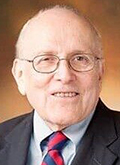 Steven Douglas, a professor of pediatrics in the Perelman School of Medicine, died on March 13. He was 85.
Steven Douglas, a professor of pediatrics in the Perelman School of Medicine, died on March 13. He was 85. Virginia LiVolsi, a professor of pathology and laboratory medicine in the Perelman School of Medicine, died on March 7. She was 80.
Virginia LiVolsi, a professor of pathology and laboratory medicine in the Perelman School of Medicine, died on March 7. She was 80.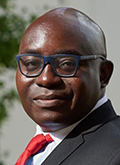
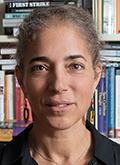 Wale Adebanwi and Deborah A. Thomas, both affiliated with the department of Africana studies in the School of Arts & Sciences, have been named 2024 John Simon Guggenheim Memorial Foundation Fellows.
Wale Adebanwi and Deborah A. Thomas, both affiliated with the department of Africana studies in the School of Arts & Sciences, have been named 2024 John Simon Guggenheim Memorial Foundation Fellows. 
 Junior students Aravind Krishnan and Tej Patel, have received Harry S. Truman Scholarships, a merit-based award of as much as $30,000 for graduate or professional school to prepare for careers in public service.
Junior students Aravind Krishnan and Tej Patel, have received Harry S. Truman Scholarships, a merit-based award of as much as $30,000 for graduate or professional school to prepare for careers in public service. Born in Korea, Mr. Kim immigrated to the U.S. with his family when he was 14 and settled in Fairfax, Virginia. Mr. Kim’s research focuses on the biological underpinnings of neurological disorders and applying mathematical and engineering principles to address them. At Penn, alongside multidisciplinary research and clinical faculty members at Penn Medicine and the Children’s Hospital of Philadelphia, Mr. Kim investigates novel methods to optimize clinical effects of neuromodulatory therapies across neurological and neuropsychiatric disorders. Mr. Kim earned his bachelor’s degree in biomedical engineering and neuroscience from Johns Hopkins University in 2022. He worked on numerous translational and clinical research projects across the neurology, neurosurgery, and psychiatry departments at the Johns Hopkins School of Medicine. At Johns Hopkins Hospital, Mr. Kim participated in research in identifying neural circuits involved in Parkinson’s disease and epilepsy. From this work, he holds a patent as a lead inventor and was awarded the Barry Goldwater Scholarship. Mr. Kim had additional training at Harvard Medical School before coming to Penn in 2023. He has published more than 18 papers in medical and scientific journals and his research has been recognized by national and international medical organizations. Mr. Kim’s goal is to become a neurosurgeon-scientist and to develop next-generation neuromodulatory therapeutics to repair neurophysiological and network dysfunctions in neurological disorders.
Born in Korea, Mr. Kim immigrated to the U.S. with his family when he was 14 and settled in Fairfax, Virginia. Mr. Kim’s research focuses on the biological underpinnings of neurological disorders and applying mathematical and engineering principles to address them. At Penn, alongside multidisciplinary research and clinical faculty members at Penn Medicine and the Children’s Hospital of Philadelphia, Mr. Kim investigates novel methods to optimize clinical effects of neuromodulatory therapies across neurological and neuropsychiatric disorders. Mr. Kim earned his bachelor’s degree in biomedical engineering and neuroscience from Johns Hopkins University in 2022. He worked on numerous translational and clinical research projects across the neurology, neurosurgery, and psychiatry departments at the Johns Hopkins School of Medicine. At Johns Hopkins Hospital, Mr. Kim participated in research in identifying neural circuits involved in Parkinson’s disease and epilepsy. From this work, he holds a patent as a lead inventor and was awarded the Barry Goldwater Scholarship. Mr. Kim had additional training at Harvard Medical School before coming to Penn in 2023. He has published more than 18 papers in medical and scientific journals and his research has been recognized by national and international medical organizations. Mr. Kim’s goal is to become a neurosurgeon-scientist and to develop next-generation neuromodulatory therapeutics to repair neurophysiological and network dysfunctions in neurological disorders. Mr. Niu was born in Kaifeng, China, but spent much of his early childhood in Shanghai. His family immigrated to the U.S. when he was 8, and he grew up in Winchester, Massachusetts. At Penn, Mr. Niu works with Arjun Raj in the Raj Lab for Systems Biology to develop new computational methods for biomedical image analysis, including a deep learning algorithm for detecting diffraction-limited spots in fluorescence microscopy images obtained from spatial transcriptomics. For this work, he was awarded the Barry M. Goldwater Scholarship in 2023. Mr. Niu is also a Dean’s Scholar, a recipient of the Roy and Diana Vagelos Science Challenge Award and the William E. Stephens Prize, and an elected member of Phi Beta Kappa. In 2022, he co-founded the student-led Project Lucid to build awareness and confidence for effective science communication among Penn undergraduates. Mr. Niu has also been a teaching assistant and peer educator at Penn and a STEM mentor at underserved Philadelphia high schools. With the PD Soros Fellowship, Mr. Niu plans to pursue a PhD in computational and systems biology at the Massachusetts Institute of Technology.
Mr. Niu was born in Kaifeng, China, but spent much of his early childhood in Shanghai. His family immigrated to the U.S. when he was 8, and he grew up in Winchester, Massachusetts. At Penn, Mr. Niu works with Arjun Raj in the Raj Lab for Systems Biology to develop new computational methods for biomedical image analysis, including a deep learning algorithm for detecting diffraction-limited spots in fluorescence microscopy images obtained from spatial transcriptomics. For this work, he was awarded the Barry M. Goldwater Scholarship in 2023. Mr. Niu is also a Dean’s Scholar, a recipient of the Roy and Diana Vagelos Science Challenge Award and the William E. Stephens Prize, and an elected member of Phi Beta Kappa. In 2022, he co-founded the student-led Project Lucid to build awareness and confidence for effective science communication among Penn undergraduates. Mr. Niu has also been a teaching assistant and peer educator at Penn and a STEM mentor at underserved Philadelphia high schools. With the PD Soros Fellowship, Mr. Niu plans to pursue a PhD in computational and systems biology at the Massachusetts Institute of Technology. Alain Rook, a professor of dermatology and the former director of the photopheresis program, received a Lifetime Achievement Award from the International Society for Cutaneous Lymphomas.
Alain Rook, a professor of dermatology and the former director of the photopheresis program, received a Lifetime Achievement Award from the International Society for Cutaneous Lymphomas. 